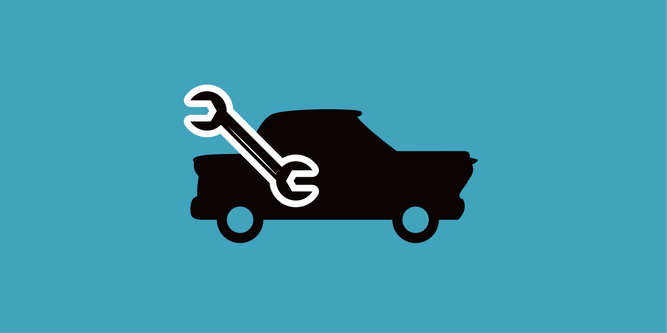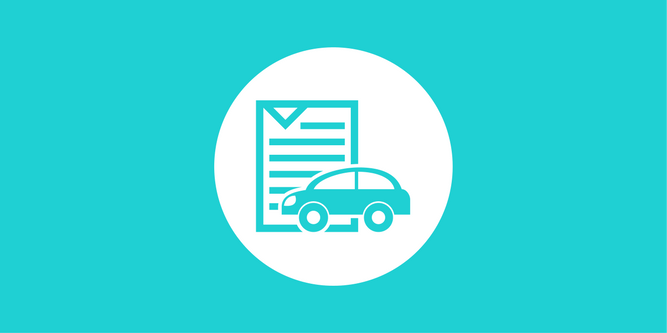
Buying a car costs a lot of money, and in order to maintain it, you will need even more money.
Between financing various costs, insuring the car and taxes, owning a car can quickly drain your bank account.
There’s a lot of money to be saved once you start paying attention to how much the car costs, all expenses included.
The six major costs of owning a car
According to AAA, there are actually seven different areas of your car that will drain your funds substantially.
That’s because they consider the tires a different category on their own.
However, since they are a meaningful part of maintenance, there’s no reason it shouldn’t be considered as such.
In the end, here's a list of car expenses you can expect to deal with, and the average costs of each so you can set your budget for your next car:
1. Fuel
Based on the average distance driven per year, the average cost of fuel is $1,500, or roughly 3.68-13 cents per mile. However, this is an average based on national statistics.
The disadvantage of using this figure is the outliers that exist. How much you actually spend depends on a variety factors including the model of the car, the type (gas or electric) and how many miles you drive.
Additionally, factors you may not directly have control over such as the specific price of gas in your area and the condition of the roads also play a part.
The range is far too large to specify exactly.
2. Finance charges
On average, Americans spend $669 a year in auto loan finance charges. This is assuming you pay the average of 10% in down payment.
You should take about five years paying back this loan with average credit. The actual amount you spend really depends on the size of your down payment. term of your loan and your credit.
3. Depreciation
Depreciation costs $3,654 a year, and represents 40% of the cost of owning a car annually.
You shouldn’t be surprised by this since new cars experience the most rapid depreciation during the first few years of being owned.
Most people don’t think about depreciation when using their cars. However, it’s a real cost that you will experience regardless. It represents how much value the vehicle uses over its lifetime.
On average, your car loses 20 percent of its value once you drive it out of the parking lot, and then followed by a 15 percent decrease every year after.
Once again, since this is an average, the individual numbers will vary depending on the model of your car, how often you use it and how much you depend on it.
4. Insurance
The average cost of insurance is $1,115 per year, but still depends on the type of car you drive, the state you live in and how careful you are on the road.
Insurance premiums vary drastically from state to state.
The cheapest state is perhaps Maine with an average of $80 per month, and the cost climbs to a high of $213 in Michigan.
Of course, if you drive your car often, you should get an insurer who is willing to accommodate your position better.
Some insurers are known to offer packages that are based on the number of miles driven rather than the merit of you owning a car.
5. Maintenance and tires
Once again, according to AAA, the average cost of maintenance of is $766.50 a year, excluding tires.
The cost of repairing and maintaining tires is a lot cheaper than that, at $147 a year. In the end, maintenance will cost about $913.50 a year.
However, this is the average cost for newer cars. Older models could easily see this number double or even triple depending on how much you use the car.
However, the cost of maintenance isn’t fixed and will depend on your circumstances. If you take care of your car better, the cost is likely to be lower.
Additionally, the place you live could easily affect this cost. Areas that are prone to harsh weather are also not friendly to cars.
It’s really difficult to pin down every external factor that could lead to faster deterioration, so it all comes down to routine servicing.
If you’re able to do some servicing by yourself, you could also see this number go down a whole lot. So it pays to learn to change your oil, replace all the fluids, change your brake pads and other basic car maintenance.
6. Licensing, registration and taxes
The average cost of all three a year is $668 a year, but will vary greatly depending on your state.
Some states, for instance, have excise taxes that could easily shoot up the cost of yearly expenses.
Excise taxes are taxes that are applied on the deprecated value of your car. Other states are more lenient and only have some minor registration fees.
The total annual cost to own a car
Before we proceed, it’s probably important to emphasize once again that whatever numbers are presented here are only averages based on nationwide statistics. The cost may vary greatly from individual to individual.
For example, let's say you purchases a new car for $33,560. If a car depreciates by 20% just by driving it off the lot, then depreciation in the first year will be $6,712.
That’s about double the number used by AAA, and it would increase the cost of owning your car in the first year to $11,756.
In about five years, your depreciation expenses would go down to under $2,500 in depreciation expenses and would drop further down to under $1,000 by the 10th year.
Once your car is paid off, you can save money by dropping collision insurance (which is required in most states for financed cars). Plus, you'll no longer be paying the finance charges since you've paid the car off.
The only catch is that the cost of maintenance could go up by around $1,000 or more depending on personal factors. Summing everything together, the cost of owning the car should be around $5,914.
In other words, the longer you own the car, the less you pay for it.
Buying a new car vs. keeping your car longer
Clearly, owning a car for longer will work to your own benefit.
In other words, a car bought for $33,500 will cost $11,700 to own in the first year, but drop down to about $6000 in the tenth year.
Keep in mind that buying a higher quality car can significantly reduce your expenses. Old used cars with hundreds of thousands of miles on them will, in fact increase in cost of maintenance as time goes by.
So, it all comes down to a single question: is it worth keeping a car for a long time simply to save of maintenance costs?
The numbers definitely do suggest that, and it seems a greater percentage of the population is on board. That’s considering the average age of a car in the US is currently 12 years.
All the same, and once again, things aren’t always black-and-white. It’s difficult to base you decision solely on statistics.
Outliers exist and your personal life will dictate more than anything where you fall.
For instance, how careful a driver are you? Can you, at least partially, repair the car on your own? Last and most important of all, are your pockets deep enough to afford a new car without batting an eye?
Depending on these and various other factors, some of them environmental, it’s impossible to cut down to a single answer. It’s different for everyone.



